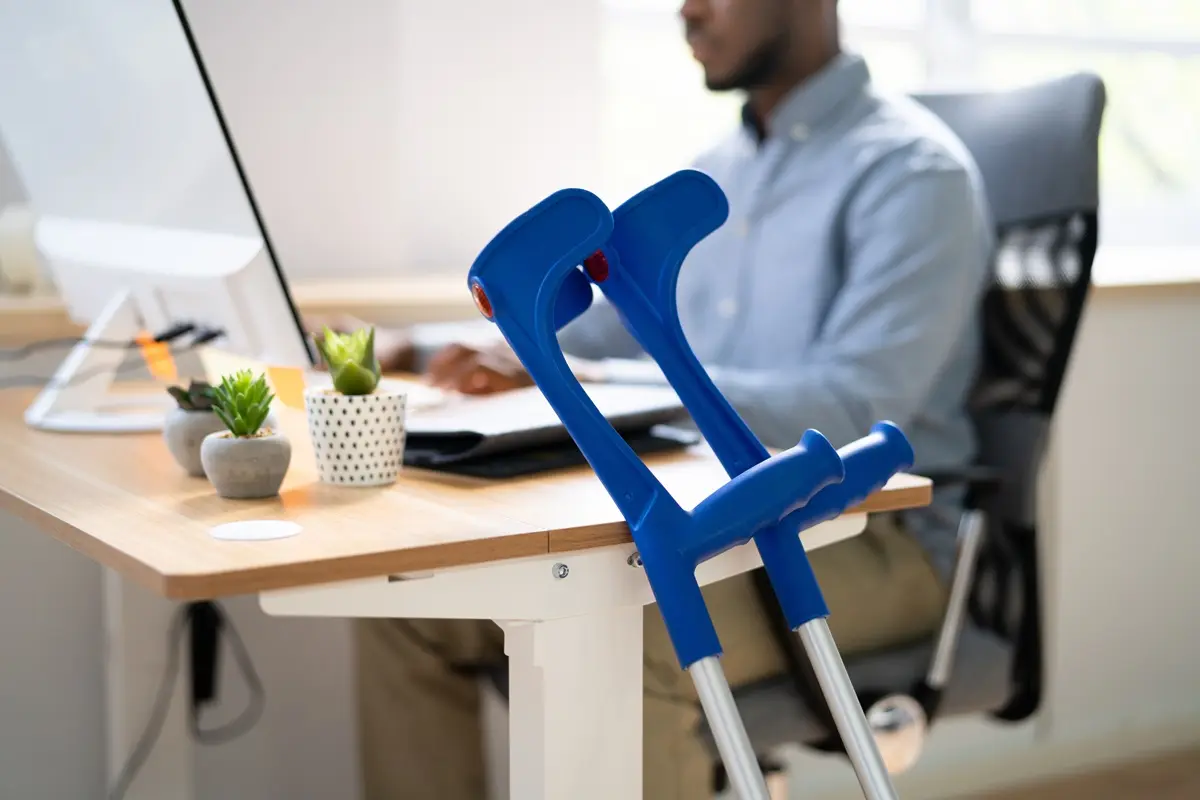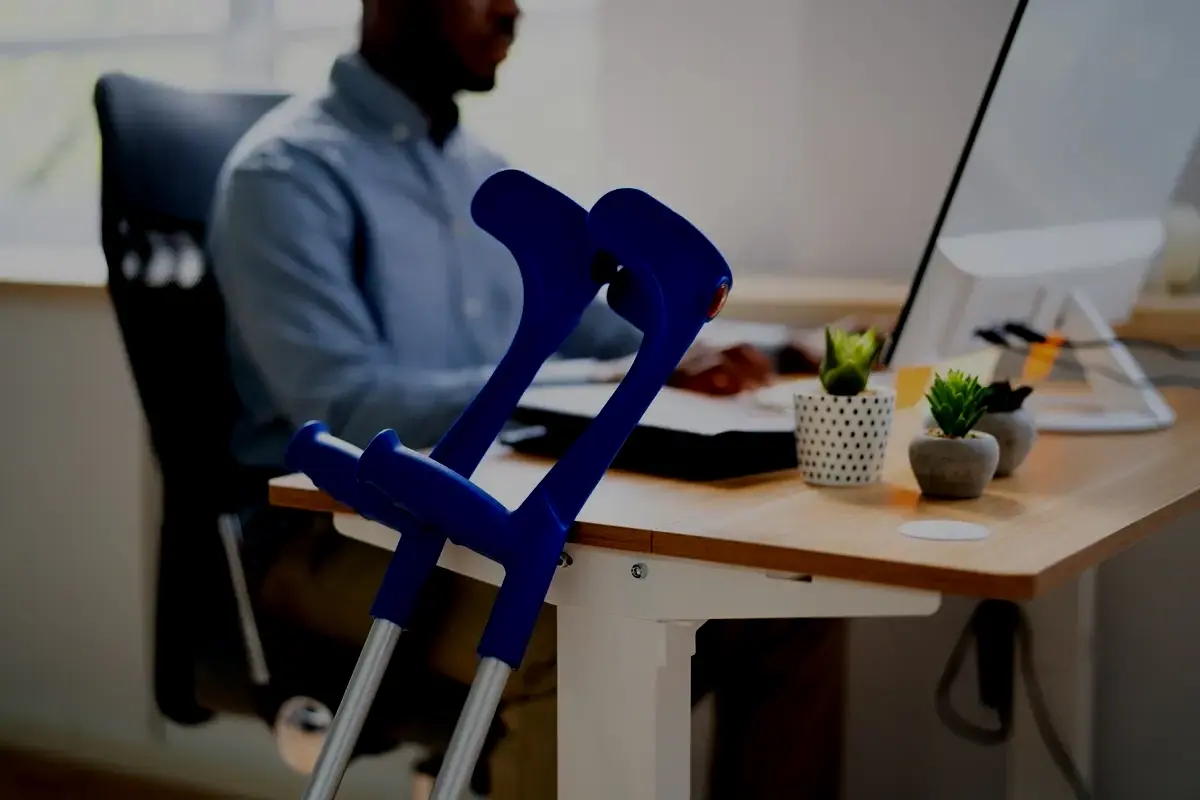Representing Jackson’s in Need of Social Security Disability Benefits
Living with a disability can affect every aspect of your life, from your relationships and hobbies to your finances and ability to earn a living. If you’ve found yourself in this precarious position, our Social Security disability attorneys in Jackson may be able to help.
Our lawyers can assist with each requirement of the application process, including obtaining medical records to prove the extent of your disability and handling appeals if necessary. Call our office at 601-873-6391 today to set up a free consultation.
What Is Social Security Disability?
Social Security disability refers to two federal programs created to assist people who are unable to work due to physical or mental impairment. These programs are Social Security Disability Insurance (SSDI) and Supplemental Security Income (SSI).
Social Security Disability Insurance (SSDI)
SSDI is available to individuals who have worked and paid into the Social Security system through payroll taxes for a certain number of years.
To qualify, you must have a disability that’s expected to last at least one year or result in death, and you must be unable to engage in any substantial gainful activity. The amount of benefits you stand to receive is based on your earnings record.
Supplemental Security Income (SSI)
SSI is a need-based program designed to help individuals with limited income and resources, particularly elderly, blind, and disabled people who have little or no means of subsistence. The program provides financial support to meet basic needs for food, clothing, and shelter. Unlike SSDI, SSI eligibility isn’t based on the individual’s work history.
Both programs require the applicant’s medical condition to meet the Social Security Administration’s strict definition of disability. Applying for disability benefits involves submitting detailed medical records and other documentation to demonstrate the severity of your condition and its impact on your ability to work.
Am I Eligible for Social Security Disability Benefits?
To be considered “disabled” for the purposes of receiving Social Security benefits, you must meet the specific criteria laid out by the Social Security Administration (SSA). According to those criteria, here are the key features of an eligible disability:
- Severe Medical Condition: The individual must have a medical condition severe enough to significantly limit their ability to perform basic work activities, such as walking, sitting, standing, and lifting, for at least 12 months.
- Duration: The disability must be expected to last for at least one year or result in death — temporary or short-term disabilities don’t qualify.
- Inability to Perform Substantial Gainful Activity (SGA): The individual can’t engage in any substantial gainful activity due to the medical condition, which means they can’t perform any significant paid work; the SSA sets a monthly income limit to define SGA.
- Listed or Equivalent Conditions: The SSA maintains a list of medical conditions (commonly referred to as “the Blue Book”) that automatically qualify as disabilities; if a condition isn’t listed, it must be equal in severity to a listed condition.
- Inability to Adjust to Other Work: The SSA also considers age, education, past work experience, and transferable skills to determine whether the individual can adjust to other work.
It’s important to note that the Social Security Administration’s definition of disability is strict and focuses on the inability to work. Being medically disabled according to a doctor’s evaluation isn’t always sufficient to qualify for Social Security benefits; you must meet the criteria set by the SSA.

Get a Free Consultation with Our Jackson Social Security Disability Lawyers
Schedule a free, no-obligation consultation with the experienced Social Security disability lawyers at Brown, Bass & Jeter today to get the guidance and representation you need for your claim.
Common Disabilities that Qualify for Benefits
Various disabilities can make an individual eligible to receive Social Security disability benefits, provided they meet the SSA’s definition of a disability. Common types of disabilities that often qualify include:
- Musculoskeletal Disorders: Conditions affecting the bones, joints, back, or limbs, such as severe arthritis, degenerative disc disease, and spinal disorders.
- Cardiovascular Conditions: Heart diseases, including chronic heart failure, coronary artery disease, and congenital heart defects.
- Neurological Disorders: Diseases affecting the nervous system, such as multiple sclerosis, Parkinson’s disease, cerebral palsy, and epilepsy.
- Mental Health Disorders: Serious mental health conditions like depression, anxiety disorders, schizophrenia, bipolar disorder, and post-traumatic stress disorder (PTSD).
- Respiratory Illnesses: Chronic respiratory ailments like chronic obstructive pulmonary disease (COPD), asthma, and cystic fibrosis.
- Digestive Tract Disorders: Conditions such as inflammatory bowel disease (including Crohn’s disease and ulcerative colitis), liver disease, and gastrointestinal hemorrhage.
- Immune System Diseases: Autoimmune disorders like lupus, rheumatoid arthritis, and HIV/AIDS.
- Endocrine Disorders: Diseases affecting hormonal balance, such as diabetes, thyroid issues, and adrenal gland disorders.
- Cancers: Various forms of cancer, especially those that are advanced or have significantly limiting side effects.
- Sensory Impairments: Significant vision and hearing loss.
To qualify for benefits, these conditions must significantly impair your ability to perform substantial gainful activity, and they must be expected to last for at least one year or result in death.
The SSA uses complex protocols to evaluate whether a specific condition meets the criteria for disability benefits. If a condition isn’t listed in the Blue Book, it may still be possible to qualify based on the severity and impact of the disability on your ability to work.
Why Social Security Disability Claims Can Be Denied
If your condition leaves you unable to work, you’re likely hoping to gain access to disability benefits to help make ends meet. However, applying for SSDI often isn’t as straightforward as it seems. It’s far too easy to make crucial errors that can either result in delays or lead to the denial of your claim.
Here are a few of the most common reasons your application could be denied.
You Lack Medical Evidence
The success of your SSDI application will likely hinge on the strength of the medical evidence you’ve provided.
Keep in mind that you need to demonstrate not just that you suffer from a debilitating condition but also that this condition interferes with your ability to earn a living. As such, you must produce medical records that clearly show how your disability impacts your home and work life.
You’ve Had a Claim Denied in the Past
If your previous claim was denied, you may think you’re better off starting from scratch and submitting a fresh application. However, if the assessor notices that you were denied benefits before, your new claim may get the same treatment. In this situation, it’s better to make use of the SSA’s appeals process.
You Already Earn Enough
Many people with disabilities are able to do at least some work to make ends meet. However, if you earn $1,470 or more per month, you’ll no longer be eligible to receive disability benefits, as earnings that exceed this amount are classified as “substantial gainful activity.”
You Failed to Follow Your Treatment Plan
As part of your recovery, your doctor may instruct you to perform certain exercises, take prescription medication, and take time off work to let your injuries heal. If it’s clear that you aren’t following your doctor’s orders, it will make it difficult for the SSA to accurately determine whether your condition prevents you from working.
You Failed to Cooperate
You may be instructed to attend medical exams and provide additional documentation when applying for benefits. Failing to follow through on the SSA’s instructions could result in prolonged proceedings or the denial of your application.
You’re Too Young
Older applicants have a higher likelihood of receiving disability benefits than younger ones. According to the SSA, most disabilities worsen as people get older, and those in their fifties or sixties are often unable to adapt to different types of work.
That said, the outcome of your claim will still depend largely on the nature and severity of your disability. For instance, if you suffer from epileptic seizures, you’ll have a convincing case for benefits regardless of whether you’re in your late seventies or early twenties.
How a Lawyer Can Help with Your Claim
Whether you’ve recently had a claim denied or you’re preparing to file a new application, it’s wise to consider seeking legal representation. There are many scenarios where you can likely handle your claim on your own, but depending on the nature of your disability, you may benefit from the advice, guidance, and advocacy of an experienced attorney.
The disability lawyers at Brown, Bass & Jeter have helped countless clients access the funds they need to pay their medical bills and day-to-day expenses. Here are a few of the ways we can assist you with your case.
Preparing Your Application
In an ideal world, completing an application would be as easy as filling out a few forms. However, for your claim to succeed, you’ll also need to provide supplementary documentation to show that your disability prevents you from working. Such evidence may include medical records, IRS forms, medication history, letters from your doctor, and employment history.
Our lawyers can help prepare your claim by taking steps to obtain the necessary records and other important information.
Communicating with the SSA
Once you’ve filed your application, you may need to communicate with officials at the SSA. For instance, a representative might request additional documentation or require you to attend medical examinations.
The back-and-forth nature of the application process can be exhausting, especially considering that you’re likely grappling with pain and other complications stemming from your disability. An attorney can handle all necessary correspondence with SSA, giving you the time and space to care for yourself and those closest to you.
Handling Appeals
If your application is denied, our lawyers can help you pursue a reconsideration or appeal and get SSA officials to take another look at your claim.

Schedule Your Free Consultation Today
If you need reliable legal advice to move your claim forward, contact Brown, Bass & Jeter today. We’re happy to offer a free, comprehensive consultation, which is a crucial first step in resolving your legal matters.
Why Choose Brown, Bass & Jeter?
Trusting Brown, Bass & Jeter to meet your legal needs offers a unique combination of benefits that set us apart in the legal field. Here’s why we stand as a top choice:
- Extensive Experience: Our team has experience in numerous practice areas, boasting a wealth of knowledge and a track record of success in diverse legal matters.
- Unmatched Professionalism: Our firm name is synonymous with professionalism and a pledge that every case will be handled with the utmost diligence and care.
- Stellar Reputation: We’ve earned an exemplary reputation in the legal community, which we’ve built by consistently delivering effective and ethical legal services.
- Transparent Fee Structure: We pride ourselves on our transparency, particularly regarding fees — we aim to ensure that clients understand and agree with the financial aspects of our services before they hire us.
Working with a veteran Social Security disability attorney at Brown, Bass & Jeter can significantly improve your chances of having your application approved and claiming the benefits you need.



